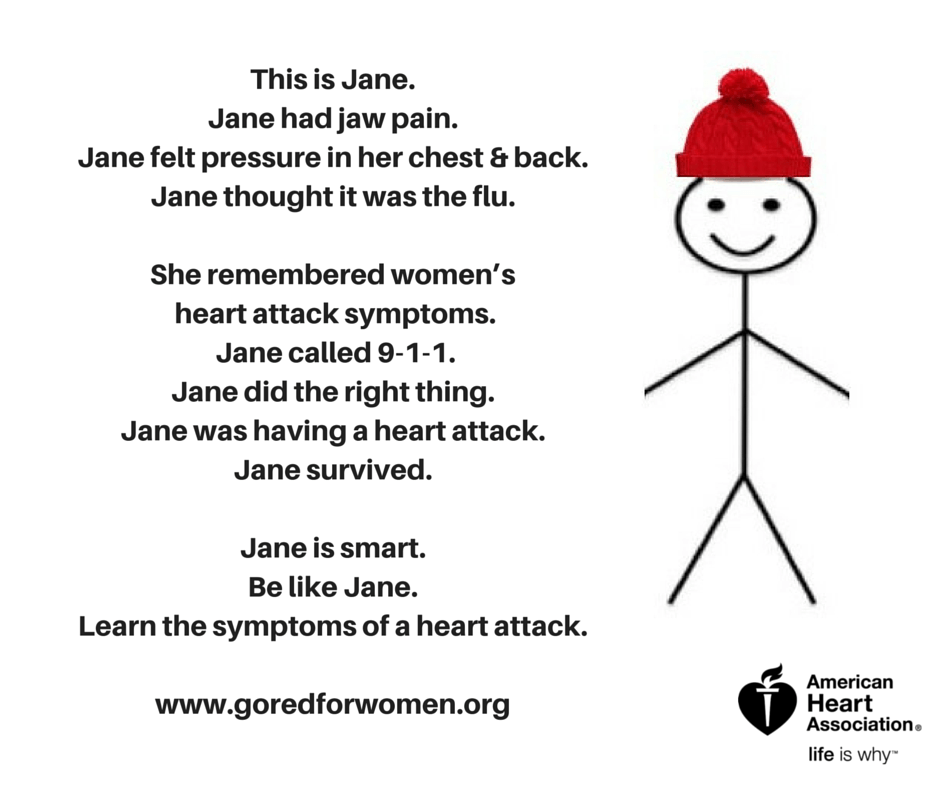
Did you know that heart disease is the No. 1 killer of women, causing 1 in 3 deaths each year? That's approximately one woman every minute! In fact, heart disease strikes more women than men, and is more deadly than all forms of cancer combined.
Do you know the symptoms of a heart attack and what to do at the first sign? February is American Heart Month, and Campbell County Health would like to take some time to help women in our community understand the signs or symptoms of a heart attack, which are often quite different in women than in men.
According to the American Heart Association, some heart attack signs in women include:
dizziness/light-headedness
jaw pain
discomfort or burning in the chest
shortness of breath/racing heart
flu-like sympotoms, such as nausea
tingling down one or both arms or legs
A common heart attack symptom is chest pain or discomfort, in both women and men; however, women are somewhat more likely than men to experience some of the other common symptoms outlined above. The American Heart Association in Wyoming wants to remind you that if you have any of these symptoms, to call 9-1-1 immediately.
Remember, caring for your heart through a healthy diet, regular physical activity and stopping smoking is the secret weapon to preventing heart disease.
We'll leave you with a light-hearted video, Just a little heart attack, from the Go Red for Women campaign.
About Our Cardiology Program
If you have heart issues or a family history of heart disease, we have good news: Cardiology is part of the services full-time in Gillette. Our highly skilled cardiologists at the Campbell County Medical Group Cardiology clinic are here at all times to care for patients and our
cardiac cath lab allows us to provide care quickly during an emergency. And, we can help get you back to your daily routine after a heart incident with our
Cardiac Rehabilitation program.
To learn more about our Cardiology program, please call the clinic at 307. 688.3700 or visit www.cchwyo.org/heart.